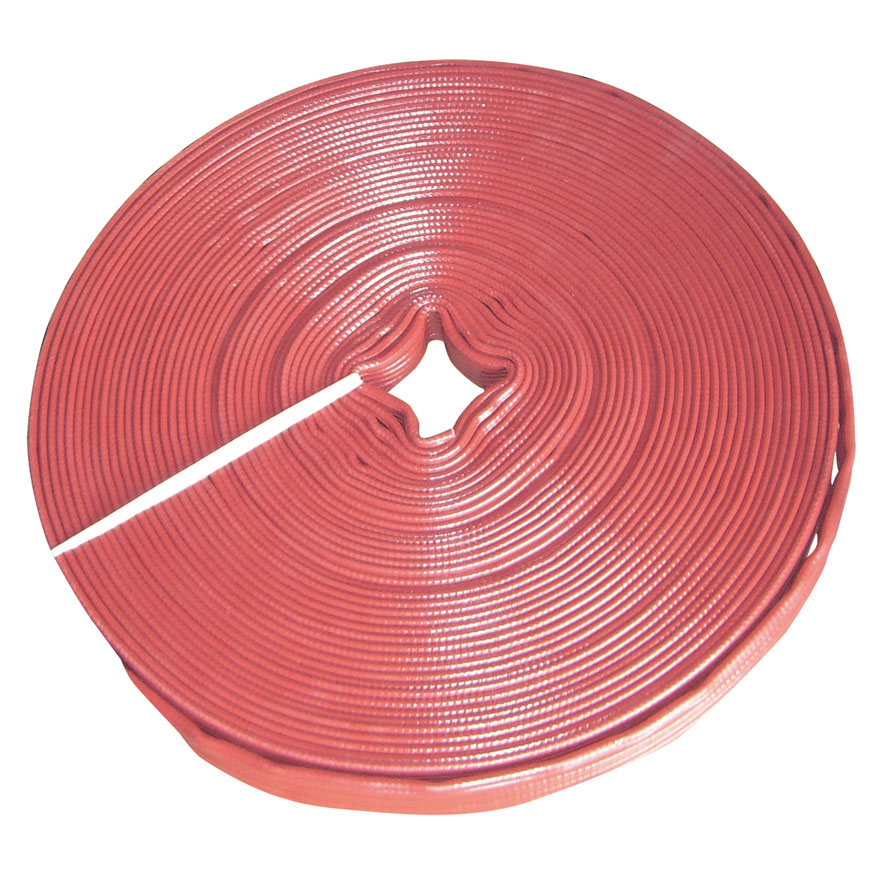As global agriculture increasingly leans toward smart water management and efficient irrigation techniques, flat irrigation pipe has emerged as a practical and cost-effective solution. Known for its flexibility, ease of storage, and versatility, flat irrigation pipe is widely used across various types of farmland, particularly in drip and sprinkler irrigation systems.

One of the most defining characteristics of flat irrigation pipe is its lightweight and collapsible structure. Unlike rigid pipes, flat irrigation pipe is designed to lie flat when not in use, making it easy to transport, handle, and store. This flat profile significantly reduces the volume it occupies, enabling farmers to manage large lengths of pipe with minimal labor and storage requirements.
Because of this compactness, flat irrigation pipe is ideal for temporary irrigation setups or mobile systems that require frequent relocation. The pipe can be quickly rolled out for use and just as easily rolled back up once the irrigation cycle is complete. This saves both time and manpower, especially during peak farming seasons.
Despite its flexible appearance, flat irrigation pipe is built for strength and long-term performance. Made from high-quality polyethylene (PE) or polyvinyl chloride (PVC), it offers excellent resistance to UV radiation, harsh weather conditions, and chemical exposure. These materials ensure that the pipe maintains its structure and function even under intense sunlight or exposure to agricultural fertilizers and pesticides.
Additionally, the abrasion resistance of flat irrigation pipe allows it to be laid over rough terrains or dragged across fields without significant wear and tear. This durability makes it a reliable choice for a wide range of agricultural environments, from open fields to greenhouses.
Another significant advantage of flat irrigation pipe is its adaptability to various irrigation systems and crop types. Whether used for drip irrigation, sprinkler irrigation, or sub-mainline connections, flat irrigation pipe can seamlessly integrate with existing systems. It can be connected to valves, fittings, emitters, and sprinklers using standard couplers or welding techniques, depending on the material type.
Its compatibility makes it especially popular in vegetable cultivation, orchards, and row crops where flexible layouts are essential. Farmers can use flat irrigation pipe to customize their irrigation network without being limited by rigid pipe structures, allowing for optimal water delivery to different sections of the field.
Cost is always a concern in large-scale farming, and flat irrigation pipe offers a highly economical solution. Compared to traditional rigid PVC or metal pipes, flat irrigation pipe is generally more affordable per meter and requires fewer accessories for installation. Its ease of installation also minimizes labor costs, as no heavy equipment or advanced technical knowledge is needed.
The pipe's flexible nature makes it easier to maneuver around obstacles, trees, or uneven terrain, reducing the need for complex layouts or custom fittings. This simplicity contributes to faster setup times, allowing farmers to respond quickly to changing irrigation needs, seasonal demands, or crop rotations.
Flat irrigation pipe is engineered for consistent water pressure and flow rate, which ensures efficient distribution across the field. Its internal surface is designed to reduce friction loss, maintaining even pressure along long distances. When paired with a well-designed drip or sprinkler system, it minimizes water waste through leaks, seepage, or evaporation.
Moreover, modern flat irrigation pipe comes with enhanced sealing technology and high-quality joints that prevent leaks even at connection points. This reliability is crucial for farmers aiming to maximize water use efficiency, particularly in regions where water resources are limited or expensive.
Whether you're managing a small family farm or a large commercial operation, investing in flat irrigation pipe can lead to long-term benefits, including reduced labor, lower water costs, and improved crop performance. As agriculture continues to embrace innovation, flat irrigation pipe will remain a key component in building resilient, resource-efficient farming systems worldwide.